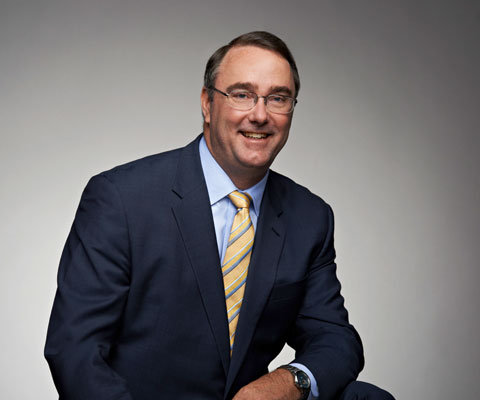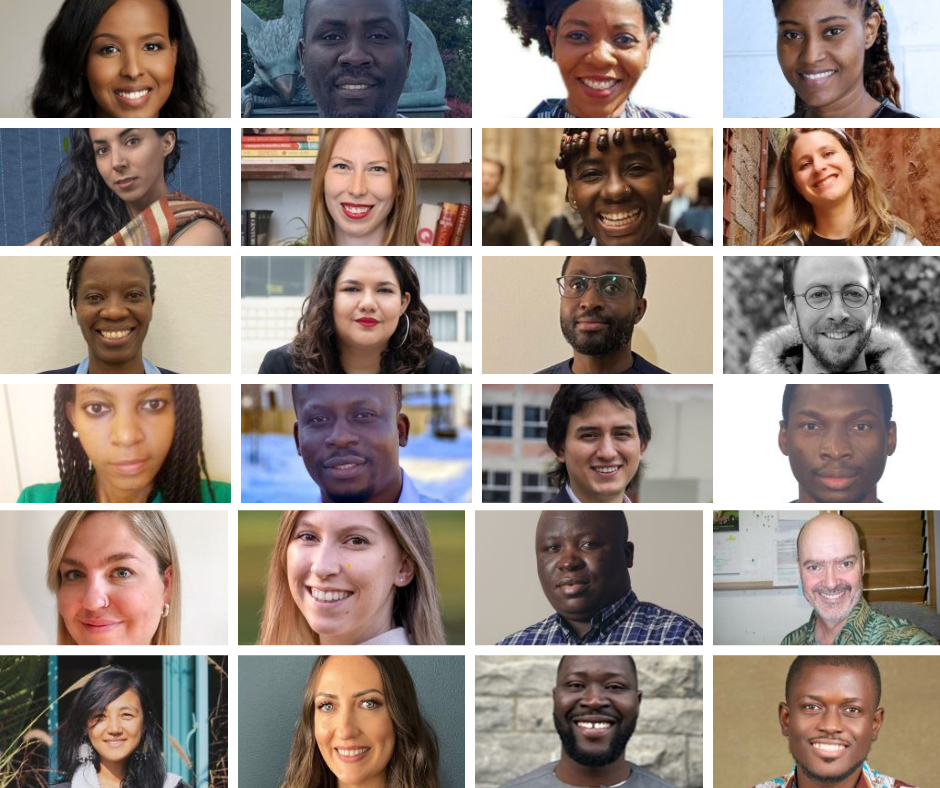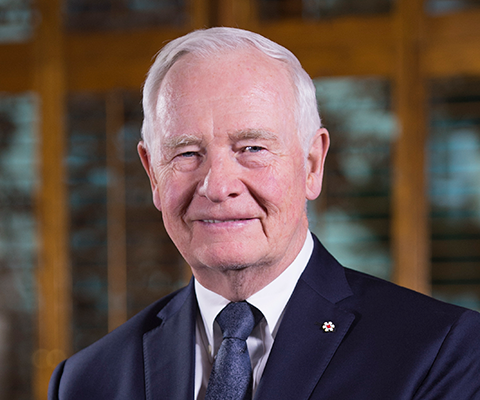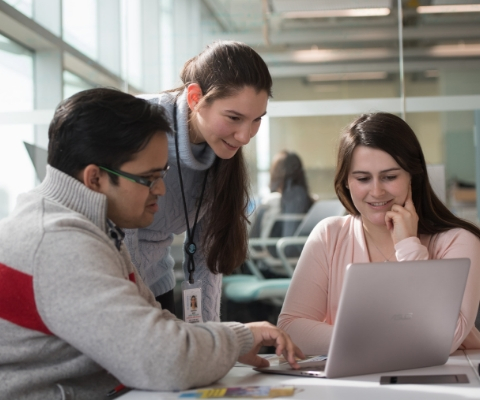21st century education for a 21st century economy and society

Remarks by Paul Davidson, President of Universities Canada to the Greater Peterborough Chamber of Commerce, September 27, 2016
I want to begin with the acknowledgement that the land on which we gather is the traditional territory of the Anishinaabe Mississauga adjacent to Haudenosaunee Territory in eastern Ontario. I would like to thank the diverse Indigenous peoples whose footsteps have marked this territory for centuries.
Thank you for your warm welcome and for the welcome back from friends and colleagues I see here today: Trent University President Leo Groarke; and T.H.B. Symons, the founding president of Trent.
Unfortunately Peter Adams, your former provincial and federal representative, and my former “boss” when I was an intern at Queen’s Park in the late 1980s, isn’t here with us today, but I’ll have the pleasure of visiting with him a little later this afternoon.
Thanks to the Chamber for inviting me. The Peterborough Chamber is attracting national attention. Just last week, Sandra Dueck received an award for policy leadership. And Perrin Beatty, your national president, asked me specifically to send greetings and congratulations.
This trip along Highway 7 to Peterborough is like a homecoming for me. Although I work with virtually all the universities in Canada, I have to confess, this city holds a special place in my heart.
Tucked between fields, forests, lakes and rivers, it allows us room to think, explore and grow.
The fall of 1983, as I started first year, was an uncertain time for Peterborough. Manufacturing jobs were moving south. Economic growth stalled across Canada and so did the job market. Unemployment was at 12 per cent. There were big worries by people just trying to live their lives and fears that Peterborough would become part of the Rust Belt.
What happened here about 30 years ago not only shaped who I am and where I am today but also shaped a lot of what and where higher education is today and – as a result – where Canada is today.
I hope you’ll indulge me in a bit of reminiscing for a moment.
As a teenager, I was headed along the 401 to check out Queen’s and McGill. I stopped off to see my twin brother Bruce, already enrolled at Trent. In that short visit, I met Jack and Jane Matthews. Jack had just returned to Peterborough to create the Trent International Program. Had you met him, you’d remember his sparkling blue eyes shaded by his fisherman’s cap. He had a vision, shared by Jane, of education that went far beyond what could be offered by one professor standing at a podium. They envisioned students from around the world learning not just from lectures and readings, but from each other.
I was so charmed by the international, interdisciplinary and innovative approach to learning here, and by the beauty of the campus, I made my decision to stay.
Jack’s program with its commitment to internationalizing undergraduate education became – and still is – a leader in Canada for providing personalized support to international students and producing Canadians with international perspectives. That’s benefitted Peterborough too.
In fact, one of the first graduates of the program, Kenzu Abdella, became the head of the Kawartha Muslim Religious Association, the organization that runs the region’s first and, so far, only mosque. Kenzu, by the way, is a professor and chair of the Mathematics Department at Trent.
And last year you elected as your member of Parliament an Afghani woman who had arrived as a refugee. Maryam Monsef, minister of democratic institutions, is also a Trent grad. I have to say when I see Kenzu’s leadership in building a plural community and Maryam’s impressive work, I’m proud.
As for me, by the time I graduated, I had studied abroad for a year at the University of Zimbabwe and volunteered with World University Service of Canada to welcome and support refugees on campus.
Today, more than six-hundred international students from one-hundred countries add to the diversity of Peterborough because they study at Trent. Think of the cultural, economic and intellectual power they bring to this community. And to this country.
Universities play a key role in the economic, social and cultural well-being of Canada. We count on them for their expertise, research and for preparing the next generation of leaders.
Canada’s universities are actively participating in a series of important federal consultations on science, economic strategy, immigration, trade, culture and innovation.
These are consultations that will shape the future of the country. Done right, the outcomes will have an effect across the country from Newfoundland and Labrador to Yukon and points in between – including Peterborough. You have a stake in each of these reviews, so you are very fortunate here to have Trent in your city. I know that Peterborough is considered a bellwether community, indicating where the country is headed politically. I think we could argue that it’s a bellwether educationally as well.
The federal government is talking for the first time about inclusive innovation: innovation that benefits the whole community. That’s been one of Trent’s motifs for a very long time.
We’re also hearing discussions on Parliament Hill about interdisciplinarity – finding ways where liberal arts, humanities, and science technology, engineering and math collide. Trent is a Canadian leader in interdisciplinary studies.
A third element is international experience. Today’s employers and students are global in their outlook and so we have to make sure they have global skills. You already know where that started.
Inclusion. Interdisciplinarity. International experience. The three “I’s” if you will. These are 21st century skills required to succeed and prosper as individuals, as a city and as a country.
To that list, we can add a fourth “I” to include a wider discussion of Indigenous education and reconciliation.
We need a workforce that has interdisciplinary, international, inclusive and Indigenous perspectives.
Universities take seriously their role in equipping Indigenous youth for the future and in supporting them in reaching their full potential.
Last year, the 97 members of Universities Canada – including Trent – adopted 13 new principles on Indigenous education. The principles acknowledge the unique educational needs of Indigenous peoples in Canada, and promise to increase opportunities for success.
Universities are turning those promises into action. They are changing academic programs to reflect Indigenous history and realities. And they are fostering engagement between Indigenous and non-Indigenous students. Also on the rise are important cultural activities, meeting spaces, mentorships and transition programs that help Indigenous students build a sense of community on campus and stay connected to their identity.
Both are keys to educational success.
Let me assure you, this is a renewed effort, not a new one. Canada’s universities long ago identified the need to improve Indigenous peoples’ access and success in higher education. Just 10 per cent of Indigenous people aged 25-64 hold a university degree, while 26 per cent of non-Indigenous Canadians in the same age group do.
We have to do better and we’re working on it. But just guess which university has led the way.
The Department of Indigenous Studies at Trent University is the oldest program of its kind in Canada and was just the second in North America. The Trent University Native Association has provided a voice for Indigenous students within the Trent community since 1969.
Universities play an even broader role in reconciliation. They convene citizens to reflect on our past and chart an inclusive future. Universities are fostering indigenous leadership through new governance structures, and modifying curricula to recognize indigenous ways of knowing. These are early days but the work of reconciliation is intensifying at Canada’s universities.
As employers, you may have benefitted already from taking on an intern or co-op student. In just one example of how that works, look to The Trent Community Research Centre. It matches university experts with non-profit organizations, NGOs and government. Students get hands-on learning experiences and the organizations benefit from students’ knowledge and fresh thinking.
The Peterborough-Lakefield Community Police, for instance, needed help determining how the Victim Services Unit could better support victims and families following a sudden death or homicide. The students carried out surveys with several stakeholder organizations and undertook a review of existing literature. They created new tools and techniques to be helpful to families of victims.
I know many of you are looking forward to the development of the Trent Research and Innovation Park. It’s another endeavour that will help transform the region’s economy by connecting the academic strengths of the university with companies looking for research talent in clean technology. It will create more opportunities for hands-on experiences for students as well as offer employers all of the innovative thinking, best and latest practices and enthusiasm that come from people ready to start their careers.
There is another reason to support experiential learning.
In a speech to university presidents last May, Dave McKay, CEO of Royal Bank of Canada, noted one of the crucial aspects of co-ops and internships that we don’t always talk about: They democratize access to jobs. He argued that for groups that don’t have social influence or established networks, these experiences level the playing field and give students a boost when it comes to job opportunities.
Through the commitment of our universities, more than half of students across all disciplines complete some form of experiential learning as part of their undergraduate degree. But even at that level, it doesn’t satisfy student demand.
We need more employers like you to step up.
Take on a co-op or intern student. You’ll be exposed to the latest thinking and you may find your next hire.
That concept of fresh eyes and different ways of thinking extends to how we teach as well.
Earlier, I mentioned the renewed national interest in interdisciplinarity.
When you consider the big challenges facing Canada, many of them require solutions from across the disciplines. To give just one example, we know technically how to build pipelines through the mountains to tidewater – but how do we as a country develop the strategies that minimize risk and distribute the benefits? How do we ensure communities benefit? That will require work from across the disciplines.
We truly mean all disciplines. And, yes, that includes the too-often maligned liberal arts as well. Trent has been a stalwart in embedding the liberal arts across all disciplines, aligning those efforts with employer demands for well-rounded grads.
The studies of history, literature, philosophy and languages, to name a few, fuel the imagination that drives innovation and prosperity. They provide a well-rounded workforce with the skills needed to navigate a rapidly-changing labour market.
I hold a Bachelor of Arts degree. So, yes, I have a bias. But I’m not alone.
A 2015 expert panel working with the Council of Canadian Academies concluded that future innovation and productivity growth will require a workforce with a balance of both STEM (Science, Technology, Engineering and Math) and non-STEM skills. The panel said leadership, creativity, adaptability and entrepreneurial ability can help maximize STEM skills and allow Canadians to effectively compete within the ever-changing global marketplace.
Still not convinced? What attributes do you look for in a new hire?
A Business Council of Canada study of Canada’s largest employers found that, when evaluating entry-level hires, employers value soft skills over technical knowledge. I’m sure you’ve added them to your own must-haves: skills in relationship-building, communication and problem-solving, analytical and leadership abilities. These are all attributes developed and honed through studies in the social sciences and humanities.
I can hear the thoughts of the parents in the room. So let’s be clear on another point. Your kids will do just fine financially with a liberal arts degree. The myth of the barista with a B.A. is just that – a myth.
Recent research shows that social sciences and humanities graduates enjoy steady increases in earnings throughout their early careers, experiencing earnings growth of more than 70 per cent over an eight-year period, similar to the rate of increases for engineering and science graduates. And let me remind you that this was during the worst financial crisis since the Great Depression.
This past spring Universities Canada organized an international forum on the future of the liberal arts for the benefit of Canadians. The event provoked fascinating discussions and raised important questions and priorities. I’m pleased to share with you today the report from that gathering. It’s called, “The future of the liberal arts: a global conversation.” You’ll have noticed the report on your tables.
We are nearing Canada’s sesquicentennial. A time to look back on how far we’ve come as a nation but also a time to look forward set a new course that matches our vision for who we want to be.
You could say Trent University emerged as a centennial project. It was a bold and ambitious civic project with broad community and business support. Students and faculty who’ve come through this community have helped shape this country since. James Orbinski, a humanitarian activist comes to mind. TV producer Stephen Stohn is another, as is Lucie Edwards who made her mark in the foreign service.
We see their imprint in the arts, culture and our national identity.
Today’s students and faculty, Generation 2017, if you will, are continuing to shape who we are. The investments we make in them and the experiences they have will in large part determine Canada’s prosperity and place in the world for decades to come. You have been the benefactors of thinking that has been ahead of the game. You can be participants too. Pick up the phone, go meet with faculty and students and see what’s going on.
Take on a student for an internship or co-op program and see what they bring to your workplace.
Think about Canada’s need for a workforce that is innovative, interdisciplinary and international. Then consider where that workforce is honed.
I am thankful today for the reception I’ve received from the City of Peterborough, The Chamber of Commerce and our sponsors: Trent University, the Workforce Development Board and Peterborough Economic Development.
With your different perspectives, you come together with a similar goal: to ensure this city’s, this region’s and this country’s health and prosperity.
You have a unique opportunity here. I’ve told you a little today about how far ahead Peterborough’s university was decades ago. If you want to see the future, if you want to see where innovation, interdisciplinarity and international experience will take us, go see what the students and faculty at Trent University are doing now.
Thank you.
About Universities Canada
Universities Canada is the voice of Canada’s universities at home and abroad, advancing higher education, research and innovation for the benefit of all Canadians.
Media contact:
Lisa Wallace
Assistant Director, Communications
Universities Canada
[email protected]
Tagged: Co-ops and internships, Global connections, Indigenous education, Research and innovation, Study abroad




